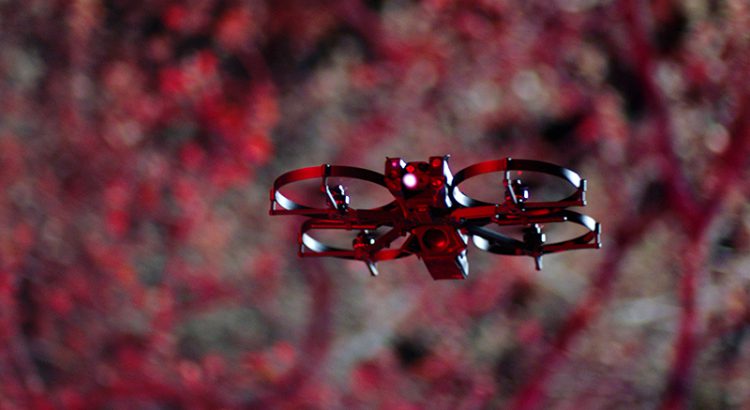BRINC, an American developer and manufacturer of technology in the service of public safety, announced the release of its next-generation drone, LEMUR 2. LEMUR 2 is the latest product from BRINC and is specially designed to enable law enforcement and public safety professionals to survey areas too dangerous to send a person, assess a threat profile, and de-escalate conflict without putting individuals in harm’s way.
BRINC was founded in 2018 with the mission of designing and delivering products that address the major challenges in American public safety, de-escalate conflict, and save lives. BRINC’s first drone, the LEMUR, was a milestone event for drone technology that introduced two-way communication capabilities, a glass breaker and optimized systems for indoor flight, among other features. Today, the newest iteration LEMUR 2 drone advances drone technology further with the introduction of an intelligent software layer.

The LEMUR 2 builds on the technological breakthroughs of LEMUR and introduces new features such as their proprietary BRINC Autonomy Engine, where the drone’s onboard LiDAR sensor creates a 3D map of its surroundings in real time to enable a suite of capabilities. This includes a 360-degrees standby hover that doesn’t rely on light or GPS systems and an obstacle awareness system that dynamically adjusts speed around objects while still providing complete control to the drone operator for tactical maneuvers. Just as the autonomy engine simplifies operation, it also keeps law enforcement and emergency services personnel informed by providing an easy to interpret, 2D floor plan to users in real time.
Blake Resnick, CEO of BRINC, commented on the news, “Today marks the next step on BRINC’s journey to advance drone technology in the service of public safety. Our mission at BRINC is to revolutionize public safety by leveraging technology to de-escalate dangerous situations. Each drone deployed to a dangerous situation is one less individual in harm’s way, and a potential life saved. The LEMUR 2 is the next era of first response technology that will undoubtedly make law enforcement and emergency services in our country more efficient and safer for all involved.”
Alongside this powerful autonomy system is a first-of-its-kind sensor array, combining 10 unique systems for supporting its autonomy systems, visual / night / thermal imaging and two-way comms. This includes a LiDAR sensor, tracking camera, multiple night vision illuminators, a spotlight with strobe, 4K camera, FLIR thermal imager, microphone and loudspeaker.
Video and data is transmitted locally to a custom BRINC controller, and encrypted using AES-256 protocols. The LEMUR 2 is also mesh network compatible, allowing for multiple drones to extend each other’s range in large buildings or underground. With an integrated 4G LTE-powered connection, LEMUR 2 drones can securely stream a live camera view and 2D floor plans to stakeholders off-site through the new BRINC LiveOps web platform.
BRINC manufactures all of its products in, and source the vast majority of its parts from, the United States. BRINC has co-located R&D and production at its Seattle headquarters and is vertically integrated, controlling its supply chain. The BRINC LEMUR 2 is National Defense Authorization Act (NDAA) compliant and approved by the US government for its products to be used by federal agencies and contractors. BRINC is also investing in a safer tomorrow by developing a network of docked drone systems to respond to 911 calls quickly and effectively, moving response time from minutes or hours into seconds while providing the capabilities to enable a de-escalation-first approach to public safety.
Resnick continued, “Throughout our journey, we have worked with past and present law enforcement and emergency services professionals to understand their unique challenges and enhance their ability to do difficult jobs safely with best-in-class technology. We look forward to building upon our success and continually pushing the boundaries of what BRINC can offer to benefit public safety.”




